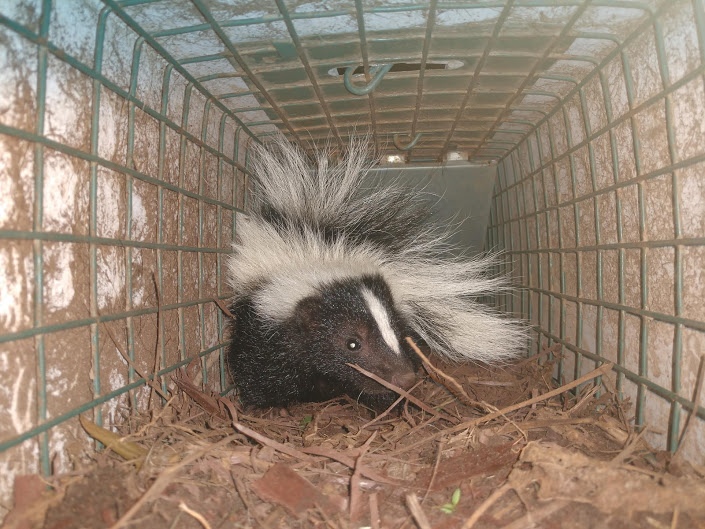Unlike rats, weasels, minks, and raccoons, skunks do not typically climb fences. Because of this skunks will dig holes in lawns and gardens to search for food. A skunk’s diet consists of both plants and animals. They eat considerably more animals during the spring and summer months when insects are readily available. Skunks love grasshoppers, beetles, and crickets mostly, but they will also eat earthworms, bird eggs, garbage, and pet food. Skunks will dig holes in lawns and gardens to search for food. They dig small, 3-4 inch cone-shaped holes or patches and can be noticed by piles of upturned earth.

Skunk spray is not known to contain the rabies virus. However, skunks are a rabies vector species. Because of this, you want to avoid being bitten by and coming into unprotected contact with bodily fluids of skunks. Call us if you have a skunk issue immediately and we can help safely and humanely remove it. Remember, skunks will not defend themselves unless they are cornered or harmed. They typically warn you before discharging their scent by stomping their front feet rapidly and arching their tails over their backs. If you experience this threat you should retreat quietly and slowly. Avoid making loud noises and quick movements.
Wildlife Control Tip: If you’ve been sprayed by a skunk, mix 1-quart hydrogen peroxide, 1/4 cup baking soda, and 1 teaspoon dish-washing liquid. Use this mixture to shampoo yourself while avoiding contact with your eyes. Clean, rinse and repeat as needed.
If you have any skunk issues, please give us a call and we can help remove them immediately! 315-383-9944
